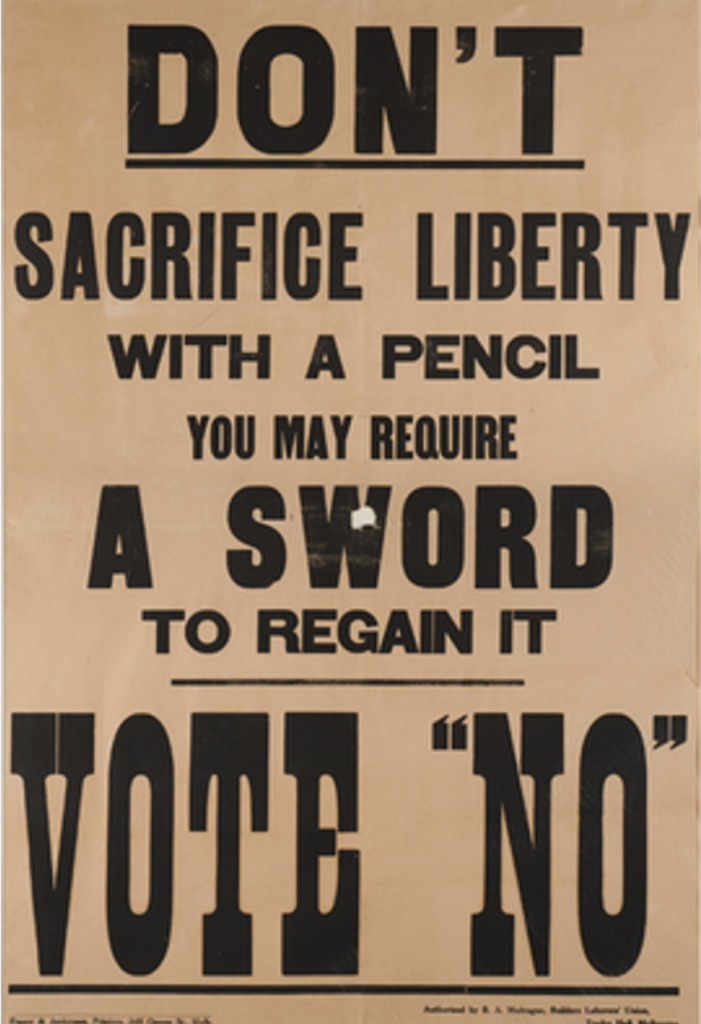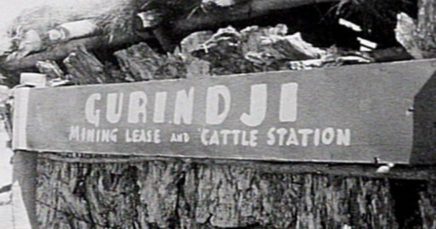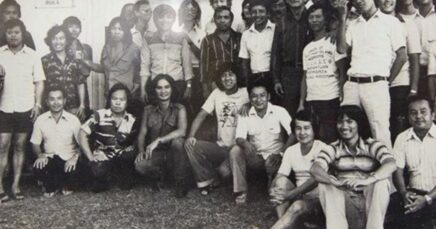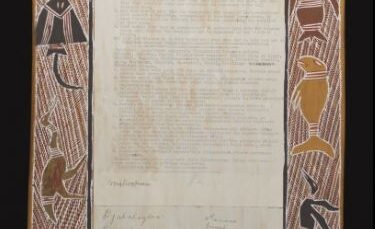
On the 28th of October, 1916, the union-led campaign against conscription for overseas service won a historic victory in a national referendum.
When the First World War began in August 1914 large numbers of trade unionists signed up to the Australian Imperial Forces.
So many members of the Australian Workers Union joined that the union made a request for an entire battalion to be formed of its members.
But the union movement was clear – no Australian should be forced to fight in Europe. It had to be their own choice.
In 1916 the Labor Prime Minister, William ‘Billy’ Hughes, returned from a tour of Britain and announced there would be a public vote on whether or not Australia should introduce conscription for overseas service
The union movement provided a united front against Hughes, insisting Australians should be free to choose if they fought in Europe.

John Curtin, later Australia’s wartime Prime Minister during World War Two, was appointed to run the union mobilisation against conscription.
It was a heated campaign. Hughes fought back with everything he had, including a willingness to use the law against his opponents.
Racism was an odious part of Australian politics. Both sides of the campaign appealed to the White Australia policy. This aspect of the campaign should not be excused or forgotten.

The union movement focused on its strengths – mobilising working people to change public opinion.
Anti-conscription manifestoes were printed and distributed. The military censor raided union buildings to try and stop their distribution, but workers found other means to get the word out.
There were mass meetings, giant protests, and organising in workplaces across the country.

On October 4, mass demonstrations drew tens of thousands of workers to the streets in the capital cities, and in smaller towns similarly defiant public protests were held.
On 28 October the majority of Australians voted against conscription.
It made international headlines! It was a mass act of democracy where the people of Australia voted to preserve their liberties.

It was only possible because the union movement mobilised to protect hard won freedoms.
It was a time when working people did what we do best: coming together, ensuring our voices heard, and making history.



